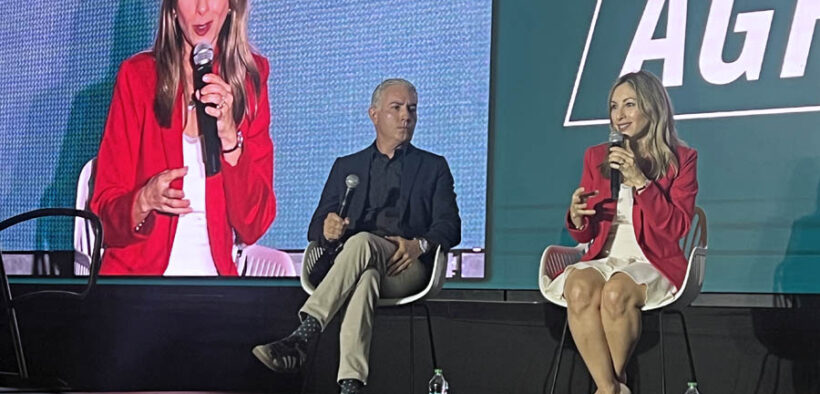Executives give tips on how Puerto Rico farmers can sell to big chains

An Agrohack summit panel focuses on logistics, quality and compliance to reach major buyers.
For many farmers in Puerto Rico, the road from harvest to store shelf can often prove tough — particularly when trying to sell to large buyers such as supermarket chains, cruise lines and multinational retailers.
However, with meticulous planning and realistic expectations, the goal becomes more achievable, panelists said Saturday during an Agrohack event in San Juan.
Isamarie Sandoval, chief operating officer of Supermercados Econo, emphasized the need for agricultural entrepreneurs to understand their true capacity.
“They must know if they can supply enough product for the whole chain or just a region or store. Also, having all the basic certifications required of the product is key. It happens a lot that we are presented with a product, and the producer doesn’t even have the permits required to operate,” she said.
“All farm products follow their own quality standards regarding size, maturity and how long they can remain fresh during transport,” explained Jorge Ramírez, an agronomist and founder of Agronegocios, a consulting firm in agricultural finance and marketing that works with clients such as Walmart and Sam’s Club. “Achieving consistent quality and knowing exactly how much the farmer is spending on the product are two essential things.”
Due diligence and smart packaging play big roles as well, Sandoval said. “Focus on what you’re trying to communicate with your packaging and how,” advised the Econo COO. “If your product was made in Puerto Rico and/or has a nutritional component that’s noteworthy, make that information plainly visible. Also, learn beforehand about the stores you’re trying to sell to.”
Sandoval also pointed to pack quantity as a factor, or the number of items that can be packed into a single package unit. While a 72-count unit is often standard, farmers may want to consider smaller quantities in their large-scale packaging due to the historically limited inventory space in many Puerto Rico stores, Sandoval added.
Logistics, specifically making sure enough product arrives on the store shelf on time, is a challenge that practically requires strategic partnerships, Ramírez argued.
“My main advice to any entrepreneur doing this for three years or fewer is to get someone to help with logistics. When a farmer wants to take on distribution, they’re adding a second business within that they may not dominate and end up cannibalizing their original business,” he said.
“Once you have a logistics partner, another common mistake is to get divorced from the product,” Ramírez said. “It’s not just a matter of delivering the boxes and asking for the check. You have to go to the aisles and check how the product is being sold and marketed. Also, talk with everyone from the store’s produce manager onward and familiarize yourself with people up and down the chain.”
Sandoval also advised not to “start and end the conversation with an email or text message,” given that “making calls and establishing face-to-face connections is absolutely essential.”












